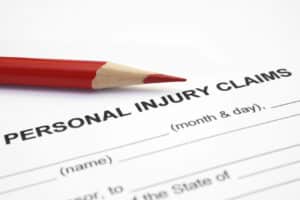What Is Maximum Medical Improvement?
Home » Personal Injury Resources » What is Loss of Consortium?

The spouse or registered domestic partner of someone who suffers a personal injury can file their own claim for loss of consortium under certain circumstances. To prevail, the personal injury victim must have a valid claim against the defendant.
The loss of consortium claim of the spouse or domestic partner is dependent on the validity of the injured victim’s claim against the defendant. Continue reading to learn more about these claims and how to prove them.
Table of Contents
Loss of Consortium Defined

When you file a loss of consortium claim, you are claiming that the defendant’s wrongful behavior so injured your spouse or domestic partner that they can no longer provide you with:
- Moral support
- Comfort
- Care
- Society
- Affection
- Assistance
- Protection
- Companionship
- Intimacy (including sexual intimacy)
- Ability to have children
Typically, a loss of consortium claim arises from a catastrophic injury.
What Do You Have to Prove to Win a Loss of Consortium Claim?
To win a claim of loss of consortium, you must prove the following four elements:
- The victim suffered an injury due to the defendant’s wrongful behavior (for example, driving negligently and causing a car accident or motorcycle accident);
- At the time of the victim’s injury, you and the victim were lawfully married or were partners in a registered domestic partnership;
- You suffered a loss of “consortium,” as defined above; and
- The defendant’s wrongful behavior caused your loss of consortium.
In effect, to win, you must prove two claims: (i) that your spouse or registered domestic partner suffered a personal injury caused by the defendant, and (ii) that you suffered a loss of consortium because of that injury.
“Wrongful Behavior”
The defendant must have caused the injury that your spouse or domestic partner suffered through some type of wrongful behavior.
This could include:
- Negligence (carelessness);
- Gross negligence;
- Recklessness (a DUI accident, for example);
- Intentional misconduct (such as a road rage accident or a criminal assault); or
- Strict liability (liability without fault, such as in a product liability claim).
Most personal injury claims, including loss of consortium claims, are based on negligence.
Damages
Your damages are the loss of consortium, which is considered a non-economic damage. You may need medical records and perhaps expert testimony to prove this. Talking about your partner’s loss of sexual function in court might be uncomfortable, but there are ways of approaching this subject with relative tact.
Causation
In all cases, you must prove that the defendant’s wrongful behavior was the direct cause of your loss of consortium. If some other cause emerges (your partner had an affair and thereby lost interest in you, for example), you cannot win your claim.
What is the Standard of Proof?
You bear the burden of proving your claim because you are asserting it. But how can you prove your claim? You might be expecting to have to prove your claim “beyond a reasonable doubt.” Beyond a reasonable doubt, however, is the standard for a criminal prosecution, not a civil claim such as loss of consortium.
Your burden of proof will be to prove each of the four elements listed above using a “preponderance of the evidence” standard. This simply means that you must prove each element of loss of consortium on a “more likely than not” basis. It is much easier to meet the “preponderance of evidence” standard than it is to meet the “beyond a reasonable doubt” standard.
Exception: The Discovery Rule
Normally, you must be married or in a registered domestic partnership to claim damages for loss of consortium. One exception applies if the injury occurred before your marriage or registered domestic partnership – but it did not manifest symptoms or cause you to lose consortium until after your marriage or domestic partnership. For example, this might happen if your spouse’s injury arose from long-term exposure to a toxic chemical.
Most Loss of Consortium Claims Settle
Statistically, most loss of consortium claims settle out of court. This is an easier, quicker, and more predictable way to resolve your claim. However, even if you hope to settle out of court, you need to prepare to win in court. A readiness to win in court can persuade a defendant to settle with you before your claim ever gets to the courtroom.
Talk With a Los Angeles Personal Injury Attorney About Your Loss of Consortium Claim
Loss of consortium claims can be challenging to prove. If your loved one was injured in an accident caused by someone’s negligence, you should contact an experienced Los Angeles personal injury lawyer to discuss your situation. An attorney will evaluate your loved one’s personal injury case and determine whether you have a valid loss of consortium claim.
